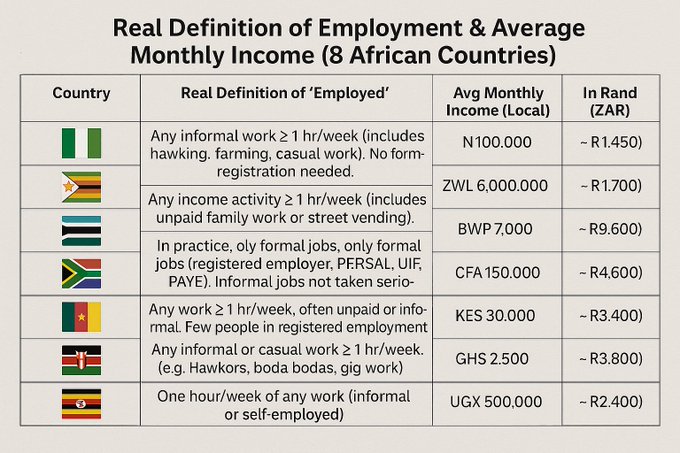**Employment Trends in Nigeria, Zimbabwe, Botswana, and South Africa**.
The definition of employment in Nigeria, Zimbabwe, Botswana, and South Africa reveals diverse labor landscapes across these African nations.
From informal sector dominance to government initiatives promoting formal employment, each country faces unique challenges and opportunities in the realm of workforce participation..
In Nigeria, a significant portion of the population engages in informal employment due to challenges in the formal sector, such as limited job opportunities and skills mismatches.
Despite efforts to boost formal employment through initiatives like the National Directorate of Employment (NDE), the country continues to grapple with high rates of underemployment and unemployment, especially among youth..
Zimbabwe has seen fluctuations in employment patterns influenced by economic instability and policy changes.
The country’s labor market has been shaped by factors such as land reforms, currency fluctuations, and political uncertainties, impacting job creation and retention.
Informal employment remains prevalent, with many individuals seeking livelihoods in the informal economy..
Botswana’s employment landscape reflects a mix of formal and informal sectors, with the government implementing strategies to enhance job creation and skills development.
Initiatives like the National Internship Program aim to bridge the gap between education and employment, promoting youth inclusion in the workforce.
However, challenges persist in achieving sustainable employment growth across various sectors..
South Africa grapples with deep-rooted structural issues in its labor market, characterized by high unemployment rates and widespread inequality.
Efforts to address these challenges include policies promoting job creation, skills development, and labor market reforms.
The country’s diverse economy presents opportunities for employment growth, but persistent barriers hinder inclusive and sustainable workforce participation..
The varying definitions of employment in Nigeria, Zimbabwe, Botswana, and South Africa underscore the complex dynamics shaping labor markets in these African nations.
As policymakers and stakeholders navigate challenges like informal sector dominance, skills mismatches, and economic uncertainties, fostering inclusive and sustainable employment remains a critical priority.
Addressing these issues will be crucial for promoting economic growth, reducing poverty, and enhancing livelihoods across the continent..









Leave feedback about this